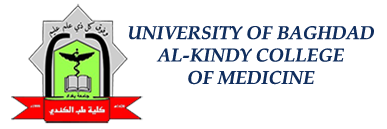The College of Medicine at the University of Baghdad’s Alkindy College recently emphasized the paramount importance of research integrity in the medical field. In collaboration with the Continuing Education Unit, and under the esteemed leadership of Dean Professor Dr. Mohammed Shahab Al-Eidani, a critical lecture entitled “Research Misconduct” was delivered by Dr. Laith Thamer Khazaal. This event drew in key figures including the Scientific Assistant, Dr. Taghreed Al-Haidari, the Administrative Assistant, Dr. Jamila Ghadhban, and numerous members of the esteemed faculty. Dr. Ikhlas Khalid Hameed skillfully chaired the session.
Dr. Khazaal’s lecture delved into the fundamental concept of research integrity in medicine, meticulously outlining the various forms of research misconduct that can arise during all phases of a study: from its inception and execution to its peer review and eventual publication. He underscored the potential for compromised ethics within the global research community, highlighting instances where published medical research was ultimately retracted due to violations of established research and publication norms.
This insightful lecture aimed to solidify the principles of integrity within medical research. By doing so, it reinforces trust in medical findings and reports, ultimately leading to enhanced healthcare quality and the development of superior treatments for patients. Furthermore, it serves to safeguard the reputation of universities and research institutions. Unwavering adherence to research ethics ensures their longevity and sustained success in the realm of scientific and medical advancement.
It’s imperative to understand that research misconduct encapsulates any deliberate deviation from the core principles that ensure the ethical conduct of research. Forms of misconduct include:
Fabrication of data: The creation of false data or results.
Falsification of data: The manipulation of research data or processes to achieve a desired outcome.
Plagiarism: Claiming another’s work or ideas as one’s own.
Conflict of Interest: Failure to disclose influences that could compromise the objectivity of the research.
Upholding research integrity is the bedrock upon which scientific knowledge and advancements in healthcare are built. When conducted with unwavering honesty, research yields results characterized by accuracy, dependability, and trustworthiness. In turn, this facilitates better decision-making in healthcare and other domains that rely on scientific evidence.
















